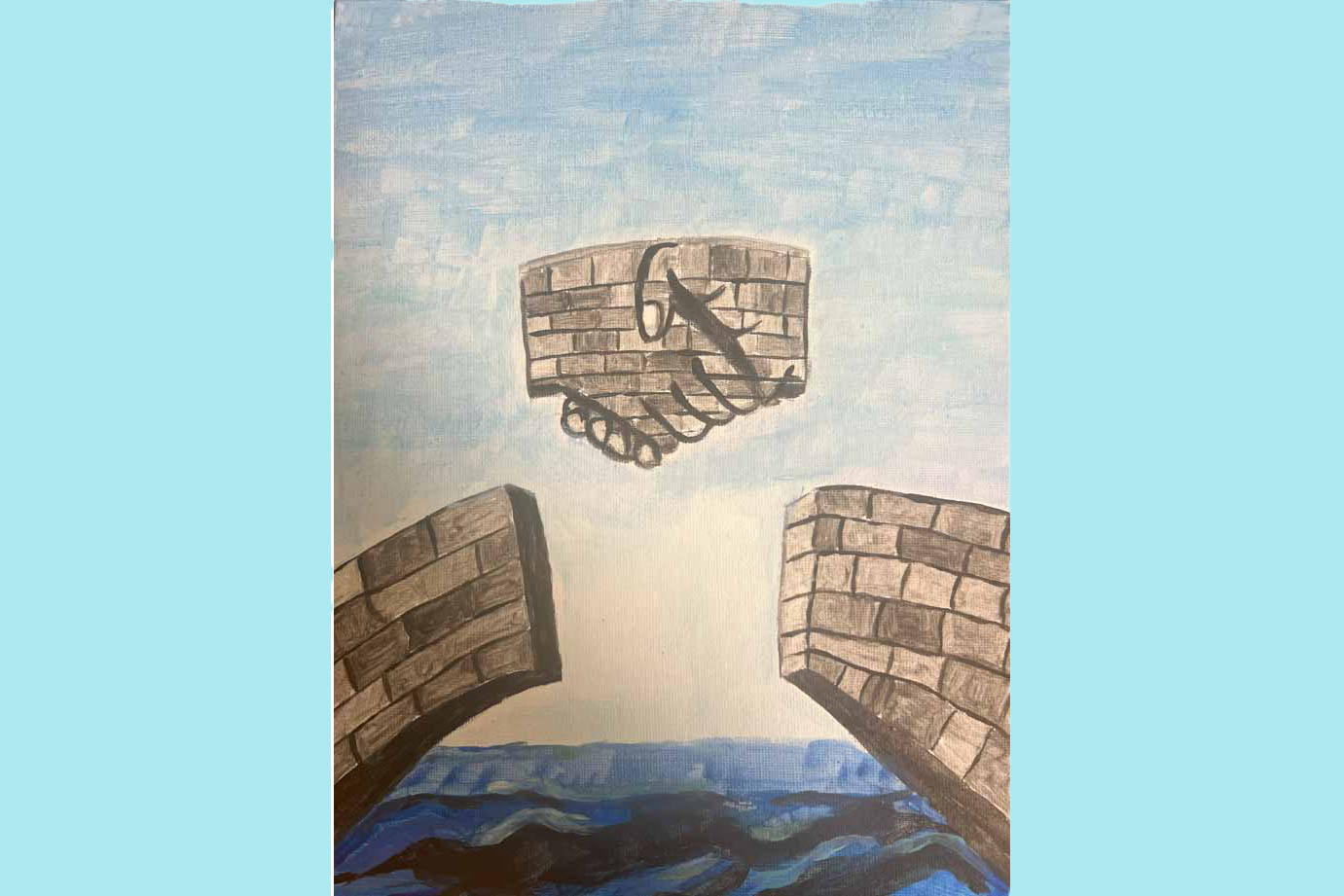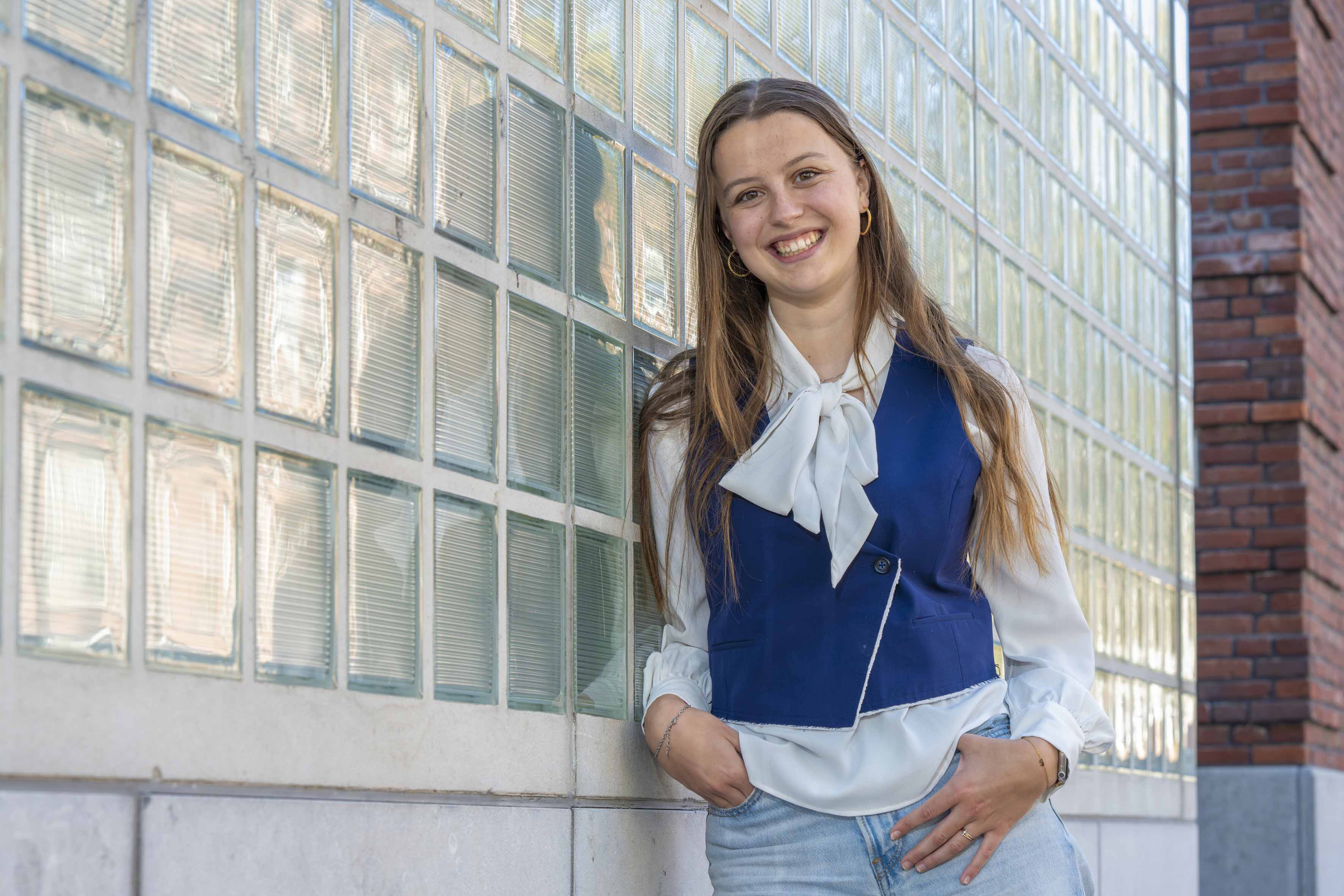
Exploring educational experiments: pass/fail and ‘unessays’ at Honours College Law
How to innovate education? In this series, the Honours Academy highlights examples from their educational testing ground that aim to inspire. Today: the liberating effect of pass/fail and ‘unessays’ at Honours College Law.
'It’s about the learning process'
Pass/fail means students don’t receive a grade for a course. Instead, they get either a pass or a fail—for both intermediate assignments and a final project. A key feature are frequent feedback moments throughout the course. 'That’s the big advantage,' says Claudia Bouteligier, director and programme coordinator at Honours College Law, where they’ve been using pass/fail since March 2024. 'It’s about the learning process, not the final result.'
Less focus on performing: that’s something honours students can benefit from, Bouteligier thought. 'They’re already doing something extra with honours. And what I noticed is that students still often focus on the end result—even those who genuinely enjoy studying. They do all sorts of activities and want to get the most out of their study time. For many of them, that includes getting high grades.'

Some students ended up struggling with themselves, Bouteligier explains. 'That shouldn’t be the purpose of an extra programme. It should energise and enhance the regular study experience.'
'Dare to be a person'
With pass/fail, you reduce competitiveness. That creates room to experiment and truly learn new things. Bouteligier: 'Dare to fail, I like to say. Try it the wrong way. In the messy reality of life, that will happen often enough, and then resilience and flexibility are essential. That’s a very important lesson, especially for ambitious students.'
'Education is about the courage to be a person,' Bouteligier believes. 'Not about shaping yourself to a prescribed idea or image, but about realising that you must stand in the world freely and make choices—your choices. And so, education must give you the space to practise that.'
Unessay: anything but an essay
Room to make choices—that’s exactly what the ‘unessay’ is for. The principle is simple: students are given the option to do something other than writing an essay. For example, they might create a painting, a fictional story, or a video that conveys their core argument. They also write a short explanation with reflection: what are we seeing here, what does it say, what choices lie behind it?
-

Unessay: 'The Marsh Girl' (Tess Sprenkeling, 2024) -

Unessay: card game about intersectionality and law (Anouk IJdema, 2025) -

Unessay: 'Redefining Global Governance' (Julia Willemse, Mees Vrijbloed, Thijmen van Bendegem) -

Unessay: 'Empathy' (Kenisha Peters, 2024)
Unessays are never mandatory at Honours College Law, Bouteligier explains. 'Some students want to further develop their ability to express their thoughts in writing. They can write an essay.' To students already comfortable with essays, the unessay presents a new challenge.
Pass/fail helps students dare take on such challenges. Bouteligier gives the example of a student who found it daunting to express her own opinion in writing. 'For the final assignment, she found the courage to do so by creating a painting. You can’t really put a grade on that, but it was amazing to see how she grew through the process.'
'Every teacher knows how hard it can be to mark with a rubric.'
More honest feedback
The system has several advantages for teachers, Bouteligier continues. 'I think every teacher recognises how hard it can be to mark with a rubric. You’re often justifying a certain grade, weighing what fits. With pass/fail, you can give more honest, constructive feedback without having to tie a grade to it. And students are more willing to follow up on it.'
This approach does require something from teachers, Bouteligier admits. 'The extra feedback moments create more work during the course. But you save time at the end because you don’t have a pile of papers to grade. Still, it also requires a different approach to assignments and sessions, and teachers need to be open to that. That’s something I discuss with my colleagues at the Honours College Law. Not everyone has to or wants to do it.'
Whether pass/fail would work well for regular education? Bouteligier encourages students and teachers to explore the possibilities through the educational testing ground of honours. 'There’s so much beauty to be found. Just try it. Push your boundaries. You’re doing something together, in freedom and openness. And that’s a wonderful thing.'

Pass/Fail in practice: 'I feel more valued'
What’s it like for honours students to only be able to earn a pass? We asked Julia (19), a law and classics student at Leiden University. As a participant in Honours College Law, she was introduced to pass/fail and unessays last year in the course Law, Literature and Film.
How did you feel about not getting a grade for this course?
'I was super sceptical at first, and I think my fellow students were too. You’re an honours student; you do value grades. How else can I show that I’m good at something?'
Are you still that sceptical?
'In the end, I realised the personal feedback you get with pass/fail is more valuable than an 8.0 or 9.0. After a few assignments, I thought: I’m actually learning much more from this. I also feel more appreciated.'
'Plus, with pass/fail, there’s no more competition. For many final assignments, you have to work together. You’re not aiming for a specific grade—you’re aiming to get the best out of yourself and your group.'
You also made an unessay for this course. Why?
'It was almost summer break. At first, I thought: I’ll just write a reflection report, quick and easy. But Claudia had once given me feedback: "I think you could write a piece of literature." I do sometimes write short pieces for myself. I thought: what could go wrong? So I wrote a story.'
What was your story about?
'About how stories can steer a court case in a certain direction, based on Camus’s The Stranger. I rewrote the story from the stranger’s perspective. What drove him? What if he’d had a fair trial? I incorporated literature from the course: Dostoevsky, Sartre, Twelve Angry Men…'
'I got the idea from my classics studies. We covered Deipnosophistae by Athenaeus—a kind of dialogue where scholars, grammarians, lawyers, and philosophers discuss various topics over dinner. I thought: I can do something like that for my unessay.'
And, how did it feel to do something like that?
'It was a bit outside my comfort zone. My writing was suddenly being read by someone other than myself. I spent quite a bit of time on it, but I also got more and more excited to work on it. I could really express my creativity. And I think other students felt the same.'
